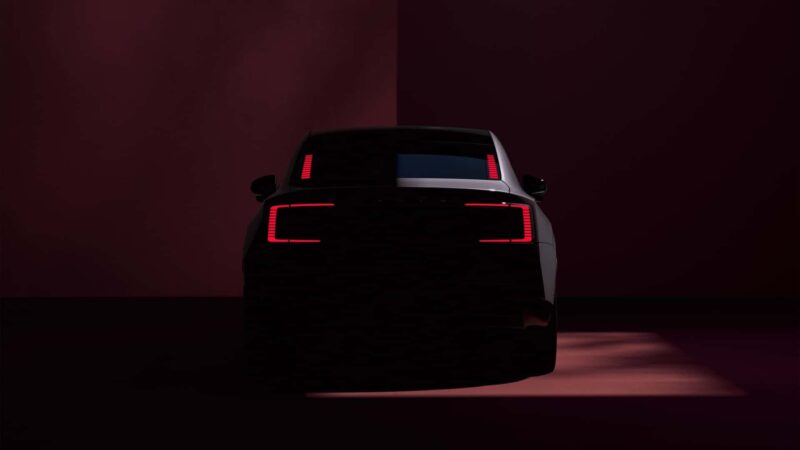Following the EX90 and EX30, Volvo appears ready to launch another electric vehicle, this time in the form of the sedan model ES90.
Built on an 800-volt electric architecture, the Volvo ES90 is claimed to offer a range of up to 700 km based on WLTP cycle data, which is 86 km farther than the range of the EX90.
With this 800V architecture, the Volvo ES90 allows for shorter charging times.
Using a 350 kW DC fast charger, the ES90’s battery can be charged from 10% to 80% in just 20 minutes.
Based on the teaser images provided, the Volvo ES90 features the proportions of a three-box sedan, but with a more aerodynamic roofline that slopes toward the rear.
Other notable features include additional LED light units on the rear pillars, physical side mirrors complete with camera units, and a LIDAR module housing on the roof.
In addition to LIDAR, the Volvo ES90 will be equipped with various components, including five radar units, eight cameras, twelve ultrasonic sensors, and Safe Space Technology supported by artificial intelligence (AI).
The Volvo ES90 will also be the first model from Volvo to come with dual Nvidia Drive AGX Orin systems, providing the most advanced computing capabilities.
It is understood that Volvo will also update the ICE variant of the Volvo S90 as an alternative for those who remain skeptical about electric vehicles—similar to the approach taken with the EX90 and XC90 models previously.
Based on leaked images circulating on social media, the facelifted Volvo S90 will feature a redesigned front end, resembling the changes made to the facelifted XC90.
More information is expected to be announced ahead of the official introduction of the ES90 next month.
